For many professionals, working with Workday® is both exciting and daunting. The platform is powerful, constantly evolving, and designed to simplify HR, Payroll, and Finance operations. But with that power comes complexity. Twice-yearly updates introduce new features, regulatory changes shift requirements, and integrations demand precision.
In theory, the official Workday® Community is there to provide support. It’s a vast online forum where guidance, documentation, and user collaboration take place. The catch? Access requires a paid subscription — and for many smaller organisations, contractors, or independent consultants, the cost can be prohibitive. Even when you have access, the sheer scale of discussions and documentation can feel overwhelming, making it hard to find practical, actionable answers quickly.
This is where peer-to-peer support networks come into play. Across projects, upgrades, and day-to-day operations, Workday® professionals are proving that collaboration is one of the most powerful accelerators of success. By sharing insights, mentoring colleagues, and answering questions in real time, they are creating a support ecosystem that complements — and often outpaces — the official resources.
Why Peer Support Matters
Workday® is not static software. It evolves with every release, and its scope spans multiple functional areas: Human Capital Management (HCM), Payroll, Time Tracking, Absence, Talent, Finance, Integrations, and more. No single person can realistically master every module, every feature, or every regional compliance nuance.
Peer support matters because it bridges this inevitable knowledge gap:
- Faster learning: Rather than wading through documentation or waiting on official channels, a quick question to a peer can produce a practical answer in minutes.
- Confidence building: Having someone explain a process or validate your approach reduces second-guessing and stress.
- Knowledge diffusion: When one person shares a solution, the entire network benefits — making each release cycle, each upgrade, and each project smoother than the last.
Peer support doesn’t just solve problems. It creates a culture of collaboration, where knowledge is shared, confidence grows, and projects move forward more effectively.
Real-World Examples of Peer Support
The value of Workday® peer support becomes clearest when you look at the day-to-day ways professionals help one another:
1. Mentoring
An experienced payroll consultant guides a new tester through a set of UAT scripts, explaining not only the “how” but the “why” behind each step. The mentor reinforces their own expertise while the newcomer gains practical skills and confidence.
2. Resource Sharing
In LinkedIn groups, Slack channels, or team hubs, Workday® professionals upload process maps, test templates, or job aids. These reusable resources save hours of effort and raise the quality of work across multiple organisations.
3. Rapid Troubleshooting
A consultant in London posts a query about leave carry-over rules at the end of the workday. Hours later, while they sleep, a colleague in Sydney replies with a tested solution. By morning, the issue is solved and progress continues without delay.
These micro-moments may seem small in isolation, but when multiplied across hundreds of professionals and dozens of projects, they become a critical driver of Workday® success.
The Wider Benefits of Peer Support
Peer support goes beyond solving immediate issues. Its impact extends across organisations and careers:
- Smoother rollouts: Projects benefit from shared expertise, reducing delays and avoiding common pitfalls.
- Higher adoption rates: End-users are more likely to embrace new features when guided by supportive colleagues rather than formal manuals alone.
- Improved quality: Peer-reviewed testing, configuration, and documentation are less error-prone.
- Career development: Professionals who mentor, share resources, and troubleshoot become recognised experts within their networks.
- Resilient communities: By relying on each other, Workday® professionals build trust and long-term collaboration that goes beyond a single project.
How to Get Involved
Getting started with peer support doesn’t require years of experience or deep technical expertise. Small contributions add up:
- Share a tip: Found a shortcut for running reports, or a neat way to structure test data? Share it with your peers.
- Upload a template: If you’ve built a UAT script or process map, chances are someone else could benefit.
- Offer mentorship: Guide a newcomer through a module you know well, such as Absence or Compensation.
- Join discussions: Participate in Workday® communities on LinkedIn or other forums — asking questions is as valuable as answering them.
- Be available: Sometimes, just responding quickly to a colleague’s query provides the momentum needed to keep a project on track.
Each contribution builds the collective capability of the community and reinforces the principle that Workday® works best when it’s collaborative.
The Payoff
The payoff of peer support is multifaceted:
- For individuals, it accelerates learning, expands professional networks, and enhances career opportunities.
- For teams, it reduces friction, boosts morale, and raises the quality of deliverables.
- For organisations, it maximises the return on their Workday® investment, ensuring smoother implementations and stronger long-term adoption.
Perhaps most importantly, peer support reduces isolation. Many professionals work on high-pressure projects with tight deadlines. Knowing there’s a trusted network of colleagues to lean on makes the work more sustainable and more rewarding.
Final Thoughts
Navigating Workday® can be complex. The official resources are valuable but not always accessible, affordable, or easy to digest. That’s why peer support has become the true accelerator of Workday® success.
Behind every payroll run, every integration build, and every successful upgrade, there are colleagues mentoring one another, sharing templates, and solving problems across time zones. These acts of collaboration are not side notes to the Workday® story — they are central to it.
In short, Workmates make Workday® work. And in doing so, they not only deliver better outcomes for their organisations but also build their own skills, confidence, and careers.

